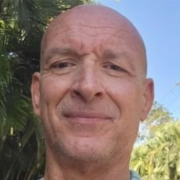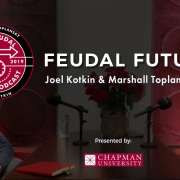Critical Race Theory Ignores Anti-Semitism
National Socialism, Maoism and Marxism-Leninism all have one thing in common: they boil down human experience to one aspect, such as race or class, and diminish the struggles and achievements of much of humanity.
In some respects, as an approach to understanding history, CRT has a certain credibility. Ibram X. Kendi’s retelling of American history in Stamped from the Beginning is lucid, well-crafted and internally consistent in its description of racism as both a motivating force and by-product of the American tale. He uses it to rationalise and support his claim that African Americans have failed to attain the fruits of American life in the same way as whites — higher education, corporate leadership, home ownership and intergenerational wealth — but suggests this is due almost entirely to racist policies embedded in American institutions and law.
It certainly does not serve any country’s history to ignore such things; they are fundamental strands of the national tapestry. But CRT and its adherents present an all too one-sided view. Its founding father, legal scholar Derrick Bell, even claimed African Americans had not made progress since Abolition, obliterating the enormous contributions — in politics, arts, culture and elsewhere — made by African Americans in the face of widespread discrimination.
CRT takes an opposite approach to many Black leaders — Marcus Garvey, Malcolm X, Booker T. Washington, W.E.B. DuBois — who sought not to lower standards, but to raise them. Indeed, Black Americans made significant progress in terms of incomes and skills in the 1940s to the 1960s, before many of the most heinous forms of racism were abolished. Relying on whites to achieve an anti-racist enlightenment has never been a good strategy, in any era.
But rather than draw inspiration from this, today’s racial activists decry the habits often associated with success as reflections of “whiteness”. Some even denounce habits such as punctuality, rationality and hard work as reflective of “racism” and “white privilege”. Mathematics and science have also been dismissed for being reflective of “racism” and “white privilege”. Yet as African American economist Glenn Loury has observed, CRT wipes out agency by downgrading “western” concepts and “impedes the acquisition of traits that are valued in the marketplace and are essential for human development.”
CRT also gives short shrift to many other histories. Most working-class Americans, particularly outside the American South, had little contact with Black workers. Their struggles were not against African Americans but against the white factory owners who controlled capital. Working-class Americans or Brits of the last century do not fit easily into the role of oppressors, nor have they enjoyed the economic benefits CRT imputes to them by dint of racial privilege.
Also cast into what Trotsky famously called “the dustbin of history” are the family stories of most Americans, Canadians and Australians — most of whom came to supply cheap labour. Engels writes about the Irish being “demoralised by dirt and poverty”, living in the worst slums of Victorian England. Whether in the United States or in Britain, Irish migrants were oppressed by their fellow whites. Although many Left-wing historians now downplay this repression, it was only in the middle of 20th Century that being Irish Catholic disappeared as a disqualification for the highest office, through the election of John F. Kennedy.
Other newcomers, such as Italians, also faced discrimination and prejudice. But few faced more strenuous opposition than Asian immigrants, who were banned from immigrating or even owning land. During World War II, the US Government actually shipped Japanese Americans off to concentration camps, albeit not for extermination but to address the racist paranoia of their mostly white neighbours — a crime not perpetrated against white German Americans.
Read the rest of this piece at UnHerd.
Joel Kotkin is the author of The Coming of Neo-Feudalism: A Warning to the Global Middle Class. He is the Presidential Fellow in Urban Futures at Chapman University and Executive Director for Urban Reform Institute. Learn more at joelkotkin.com and follow him on Twitter @joelkotkin.
Edward Heyman is currently active as a volunteer and consultant in the Orange County, California, Jewish community, following a career as a partner in a software development firm serving the defense and intelligence communities.
Photo: MCAS Cherry Point, via Flickr under CC 2.0 License.


 Dave Reichert, CC 2.0 License
Dave Reichert, CC 2.0 License U.S. Government work
U.S. Government work



 Gage Skidmore, CC 2.0 License
Gage Skidmore, CC 2.0 License